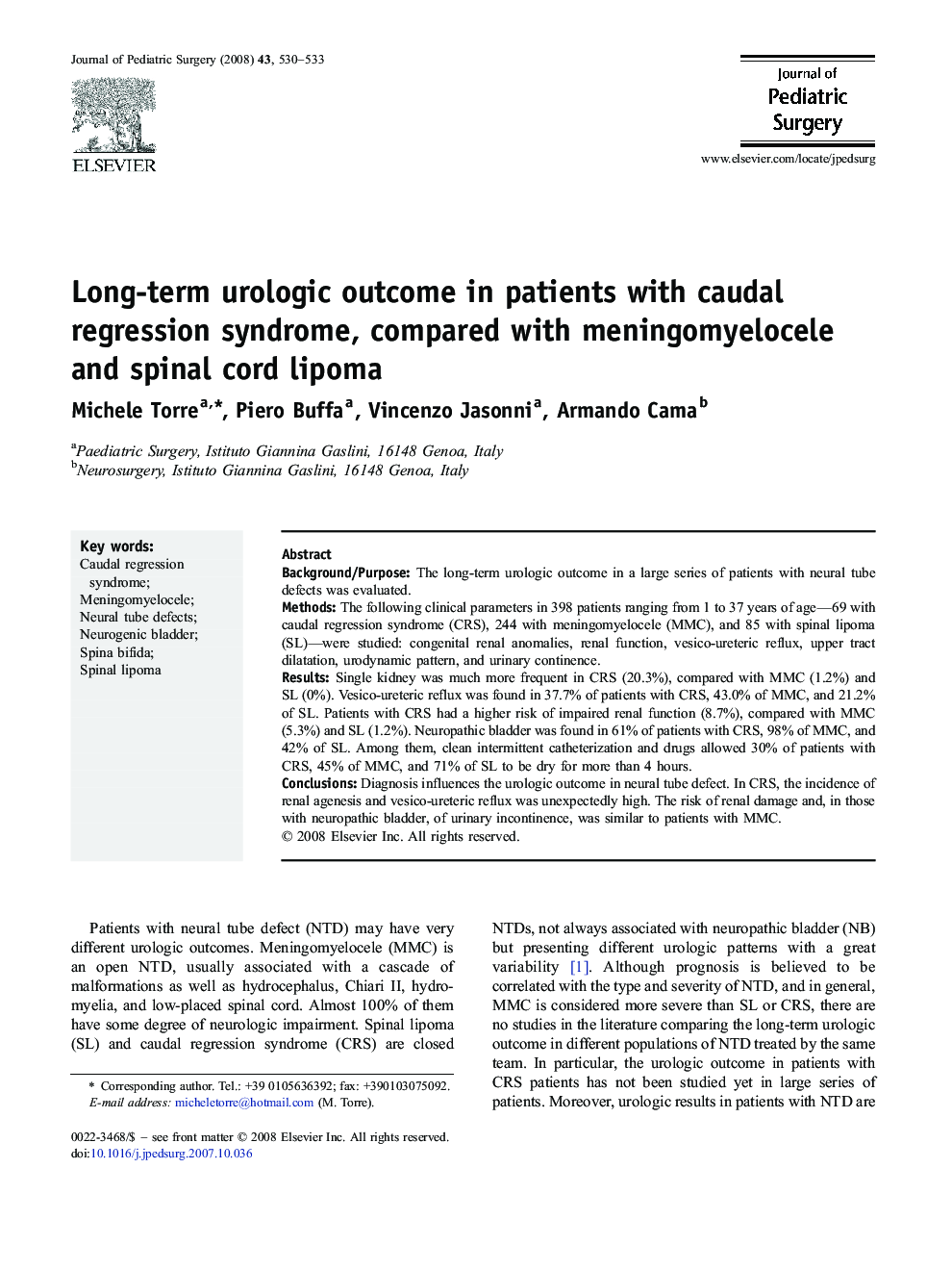| Article ID | Journal | Published Year | Pages | File Type |
|---|---|---|---|---|
| 4159796 | Journal of Pediatric Surgery | 2008 | 4 Pages |
Background/PurposeThe long-term urologic outcome in a large series of patients with neural tube defects was evaluated.MethodsThe following clinical parameters in 398 patients ranging from 1 to 37 years of age—69 with caudal regression syndrome (CRS), 244 with meningomyelocele (MMC), and 85 with spinal lipoma (SL)—were studied: congenital renal anomalies, renal function, vesico-ureteric reflux, upper tract dilatation, urodynamic pattern, and urinary continence.ResultsSingle kidney was much more frequent in CRS (20.3%), compared with MMC (1.2%) and SL (0%). Vesico-ureteric reflux was found in 37.7% of patients with CRS, 43.0% of MMC, and 21.2% of SL. Patients with CRS had a higher risk of impaired renal function (8.7%), compared with MMC (5.3%) and SL (1.2%). Neuropathic bladder was found in 61% of patients with CRS, 98% of MMC, and 42% of SL. Among them, clean intermittent catheterization and drugs allowed 30% of patients with CRS, 45% of MMC, and 71% of SL to be dry for more than 4 hours.ConclusionsDiagnosis influences the urologic outcome in neural tube defect. In CRS, the incidence of renal agenesis and vesico-ureteric reflux was unexpectedly high. The risk of renal damage and, in those with neuropathic bladder, of urinary incontinence, was similar to patients with MMC.
